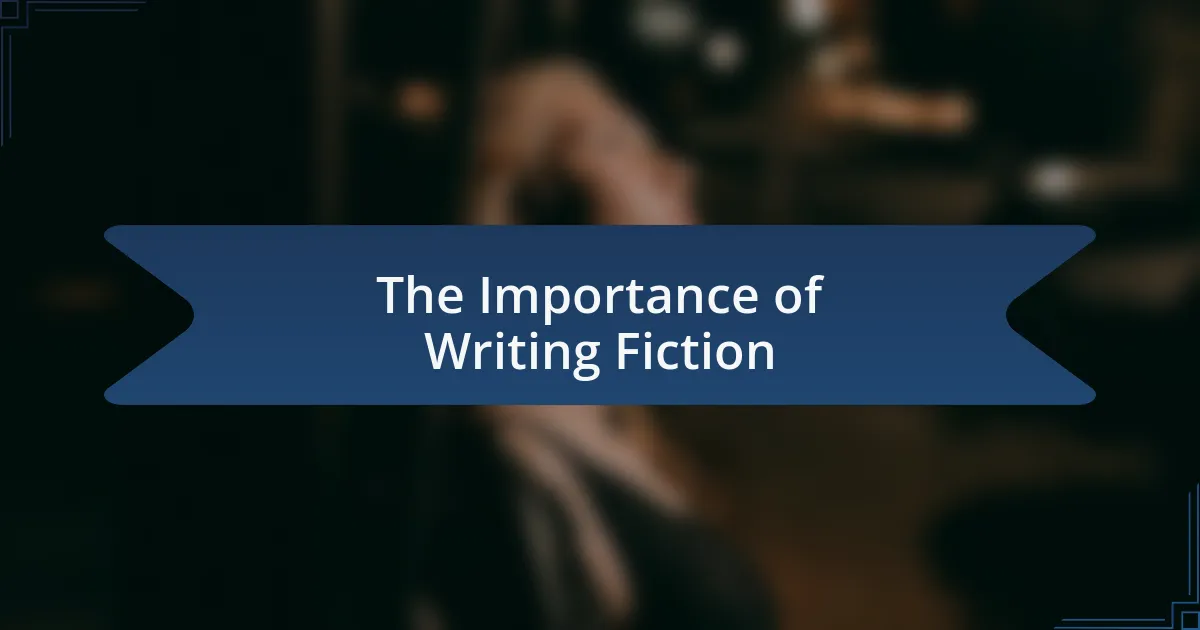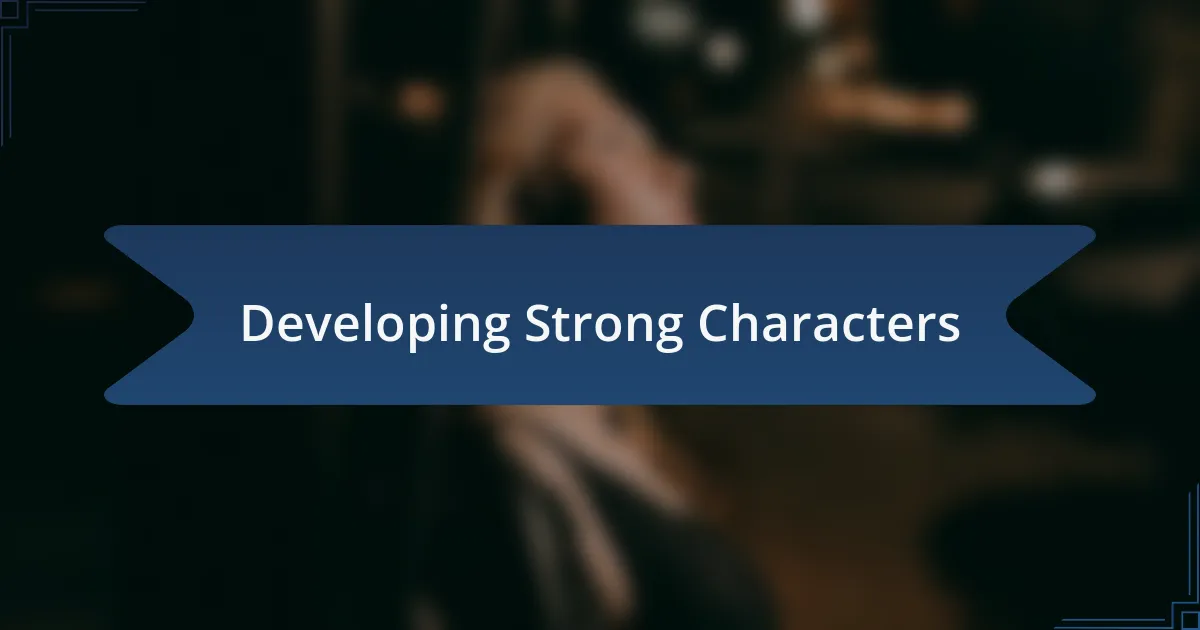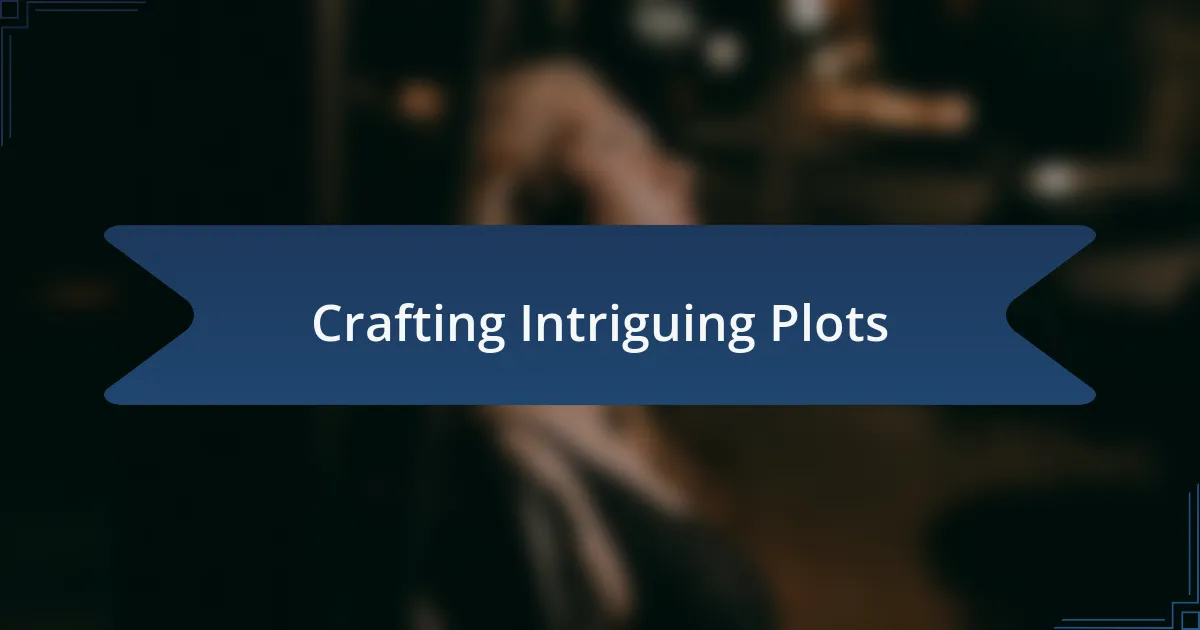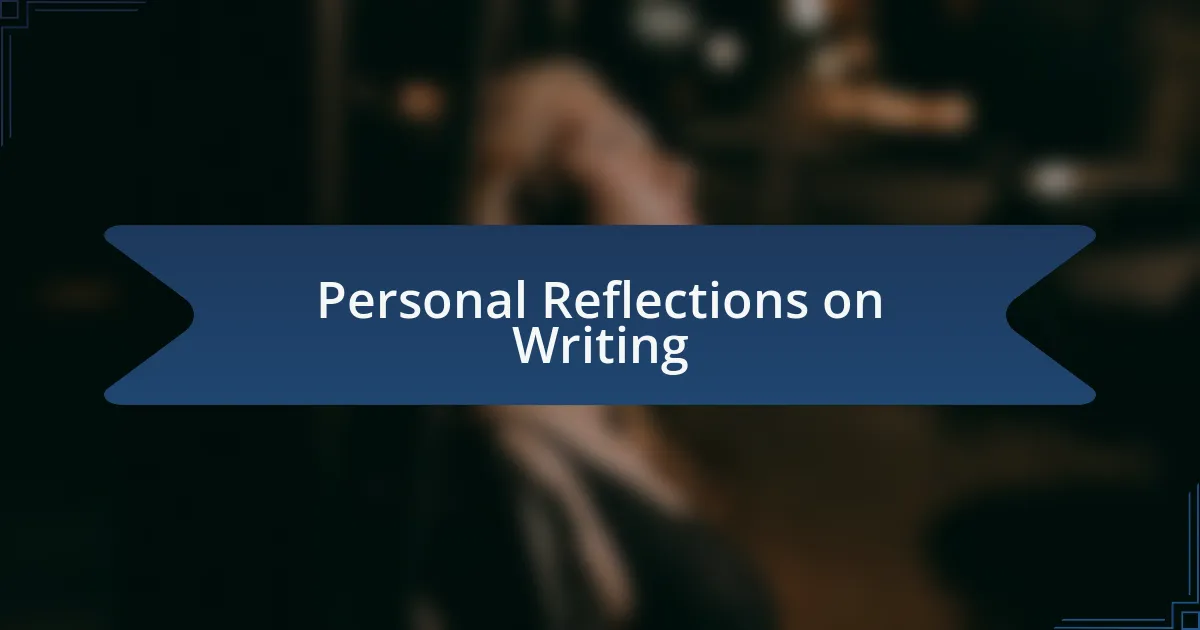Key takeaways:
- Agatha Christie revolutionized mystery fiction with her intricate plotting and memorable characters, influencing countless writers.
- Writing fiction allows for exploration of human experiences, fosters empathy, and enhances critical thinking skills.
- Character development, motivations, and effective dialogue are essential for creating engaging narratives that resonate with readers.
- Crafting compelling plots involves careful pacing, the strategic use of plot twists, and maintaining reader engagement through tension and resolution.
Understanding Agatha Christie’s Influence
Agatha Christie’s influence on mystery fiction is undeniably profound. As an avid reader myself, I remember the first time I was captivated by her intricate plotting. It made me wonder, how does she manage to weave such seemingly unrelated threads into a coherent and gripping narrative?
Her ability to create memorable characters, like the iconic Hercule Poirot, has set a standard that many writers strive to emulate. I often find myself reflecting on the emotional depth she infused into her characters, making them relatable despite their quirks. Don’t you think that elevates a simple whodunit into something more personal and engaging?
Furthermore, Christie’s innovative storytelling techniques, such as the use of unreliable narrators, prompt us to question the nature of truth itself. I recall discussing with friends how a twist in one of her novels left us reconsidering our own perceptions and biases. Have you ever experienced that exhilarating moment when a plot twist makes you rethink everything? Christie’s genius lies in her ability to elicit such moments, ensuring her stories remain timeless.

The Importance of Writing Fiction
Writing fiction holds remarkable importance, as it invites us to explore the vast landscapes of imagination and human experience. I remember crafting a short story where I delved into the complexities of love and betrayal. The process not only allowed me to understand those emotions better but also to empathize with others grappling with similar feelings. Isn’t it fascinating how storytelling can bridge the gap between different lives?
Moreover, writing fiction provides a valuable outlet for self-expression. I found that when I penned my own struggles through a character’s journey, it was not just cathartic but enlightening. It made me realize that others might share similar challenges and fears. This shared vulnerability creates connections among readers, and as writers, we have the power to foster that understanding.
Additionally, engaging in fiction writing enhances our critical thinking skills. I vividly recall drafting conflicting narratives where my characters faced moral dilemmas. Analyzing their choices compelled me to think deeply about right, wrong, and the gray areas in between. Doesn’t that expand our capacity to appreciate the complexity of real-life situations? Through writing, we become more thoughtful individuals, capable of seeing the world from multiple perspectives.
Lessons from Agatha Christie’s Work
Agatha Christie’s work teaches us the art of meticulous plotting. When I first attempted to craft my own mystery, I realized how every detail matters, much like Christie’s attention to seemingly insignificant clues. Have you ever noticed how one small piece can alter the entire narrative? This meticulousness is not just for suspense; it mirrors the complexities of life where every choice can lead to vastly different outcomes.
Another lesson I gleaned from her writing is the importance of character development. Christie created memorable characters, each with their own motivations and backstories. I remember developing a character who initially appeared to be a typical antagonist, only to discover layers of depth that revealed unexpected vulnerabilities. Isn’t it amazing how understanding a character’s struggles can enhance empathy for others in real life?
Lastly, Christie emphasizes the necessity of pacing in storytelling. I once found myself bogged down in elaborate descriptions, mimicking my admiration for her detailed scenes. However, I learned that tension and release are just as vital; a well-placed cliffhanger can keep readers eagerly turning pages. How do you think pacing affects your own writing? This balancing act can transform a good story into an unforgettable experience, drawing readers into the world you’ve created.

Developing Strong Characters
Creating strong characters is not just about giving them names and backgrounds; it’s about breathing life into them. I recall the thrill I felt when my protagonist unexpectedly took an action that aligned with their inner conflict. It was as if they had taken on a life of their own, revealing emotions I hadn’t consciously mapped out. Have you ever felt your characters pushing the narrative in unexpected directions? That moment of discovery is what makes writing truly magical.
When developing characters, motivations play a crucial role. I remember crafting a detective who seemed stoic and unemotional but gradually peeled back layers to reveal deep-seated fears of failure. This exploration led me to understand how multifaceted we all are and how flaws can cultivate an authentic connection with readers. Isn’t it fascinating how a character’s vulnerability can resonate with our own life experiences?
Lastly, I’ve found that dialogue is a fantastic window into a character’s soul. In my writing journey, I’ve experimented with conversations that reveal not just what characters say but also what they avoid. One time, a heated exchange between two characters unexpectedly turned into a reveal of their shared past, deepening their relationship and enhancing the plot. Have you noticed how dialogue can create intrigue and develop character depth at the same time? It’s a powerful tool to enrich storytelling and elevate the reader’s experience.

Crafting Intriguing Plots
Crafting a compelling plot is about weaving together threads of tension, mystery, and resolution. I recall a time when I was developing a twist that completely altered the protagonist’s journey. The thrill of planting subtle clues throughout the narrative made me reflect on how readers love to piece together the puzzle. Have you ever found yourself excitedly connecting the dots in a story? That engagement keeps readers turning the pages.
As I dive deeper into plot structure, I’ve learned the pivotal role of pacing. There was a point in one of my stories when I realized I had let a tense moment linger just long enough to build suspense without losing the reader’s interest. Adjusting the rhythm of scenes to maintain tension can be a game-changer. Isn’t it interesting how the right balance can transform a mundane sequence into a gripping experience?
Plot twists are another essential element that can elevate a story from good to unforgettable. I’ve experienced the rush of discovering a twist that not only surprises but also makes complete sense upon reflection. In one instance, a seemingly innocuous character turned out to be the key to unlocking the central mystery, leaving my readers in awe. Don’t you love those jaw-dropping moments that make you rethink everything you’ve read? They remind us of the power of well-crafted surprises in storytelling.

Personal Reflections on Writing
Writing fiction has been an enlightening journey for me. I often find myself lost in the characters’ dialogues, reliving moments of joy or heartbreak as if they were my own. For instance, while crafting a scene in which a character faced a pivotal decision, I felt the weight of their choice in my own heart. Isn’t it fascinating how our creations can evoke such genuine emotions?
Another thing I’ve discovered is the incredible power of voice. Every character I create demands a distinct way of speaking, reflecting their background and experiences. I remember a time when I worked on a protagonist with a sharp wit and sarcastic undertone; writing their lines was like stepping into a pair of shoes that fit perfectly. Have you ever tried channeling someone else’s perspective? It can be liberating and deeply insightful.
Reflecting on the act of writing, I realize that it is often a mirror for my own experiences. There are elements of my life woven into each story, whether it’s a fleeting moment of happiness or a haunting memory. It’s comforting to know that through storytelling, I can explore my own truths while connecting with others. How about you? Do you find pieces of yourself in your work? Embracing this connection can truly enhance the richness of a narrative.